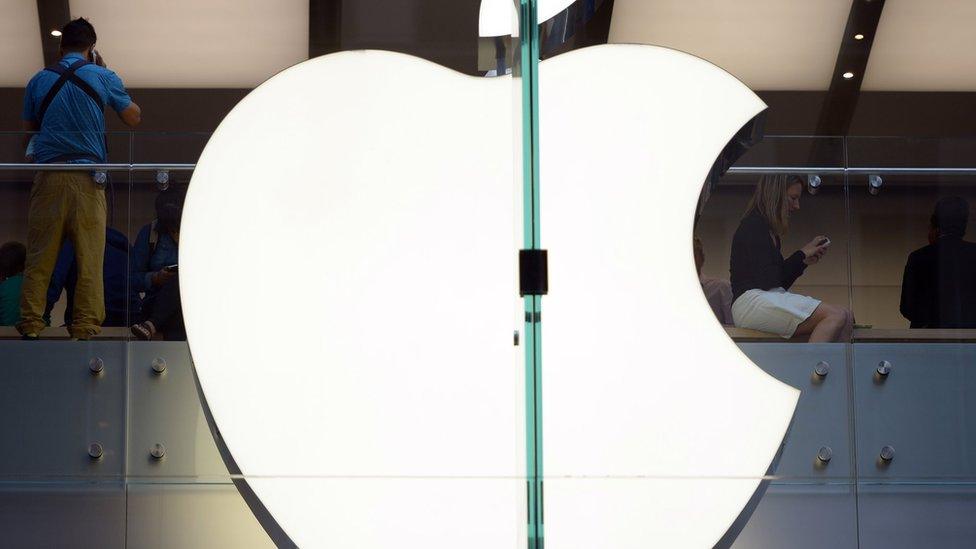Ireland reveals hand in Apple tax row
- Published

It's worth remembering that the European's Commission case that Apple should pay €13bn (£11bn) in back taxes against is primarily a case against Ireland - not the global technology giant.
Apple is obviously involved in a pretty major way and is also allowed to appeal as an affected third party but the argument is that Ireland used its tax system to give two Apple subsidiaries illegal state aid.
Some of the arguments are complicated but there are some pretty simple thoughts at the heart of this issue.
Where does the stuff that make Apple's products so successful actually happen. Is it A - in Ireland? B in your local electrical retailer? or C - in California?
Pile up
If your answer to that question is C then you agree with the Irish government (and Apple).
The huge profits Apple generates are down to great US design and innovation, should be taxed in the US and one day they will be - just as soon as someone lowers US taxes (step forward Donald Trump?).
Until then, profits on Apple's non-US sales will continue to pile up in Ireland.
The Irish government today published the reasons it thinks that is not a very good reason for it to be the tax collector for the rest of the world.
Only a tiny fraction of Apple's $200bn+ Irish cash pile was actually earned in Ireland, why should Irish tax authorities be the ones to hit them with a worldwide bill.
Whack
This point is one that the Commission seems to tacitly accept by recently suggesting that once the money is collected, other countries might want to make a claim on the pot.
It also accepts that if billions in taxable income was repatriated to the US, Ireland would collect less.
So we have Apple as pinata, everyone having a whack until some money falls out.
Finally, says the Irish government, tax and spending decisions are a matter for sovereign governments - not the Commission - and you certainly can't retrospectively legislate.
The principles behind the commissions argument come out a 2010 OECD document that is not law in Ireland and even if it was, couldn't be applied to the two Irish tax rulings at issue which were taken back in 1991 and 2007.
Changing
Although it will be years before this case is settled, the tax landscape is already changing.
The Commission may end up losing this particular battle but there is progress in the international war against tax avoidance.
The notoriously complex "double Irish" tax structure is being phased out, the OECD's work on preventing profit shifting to low tax areas is being fairly widely adopted and companies are even moving their headquarters to places where they have a real physical business (Mcdonalds from Luxembourg to the UK for example).
And, if Donald Trump does cut US taxes from 35% to 15% as he hinted during his campaign, the sea of US corporate cash lapping around the shores of Ireland and Luxembourg may start flooding back home.